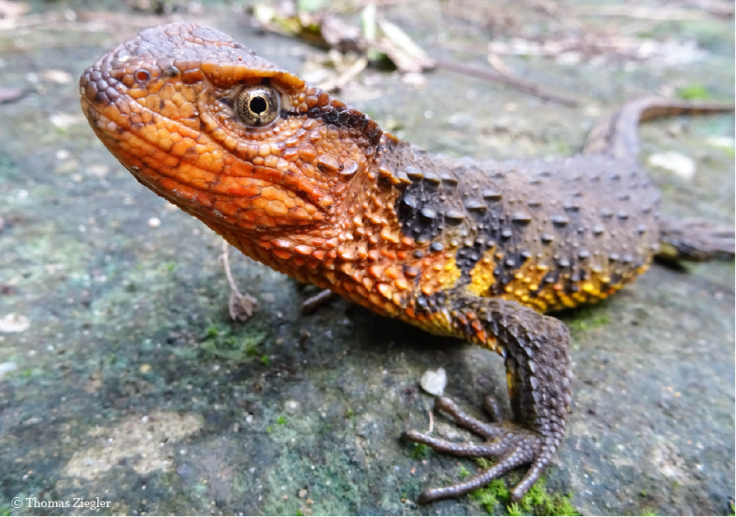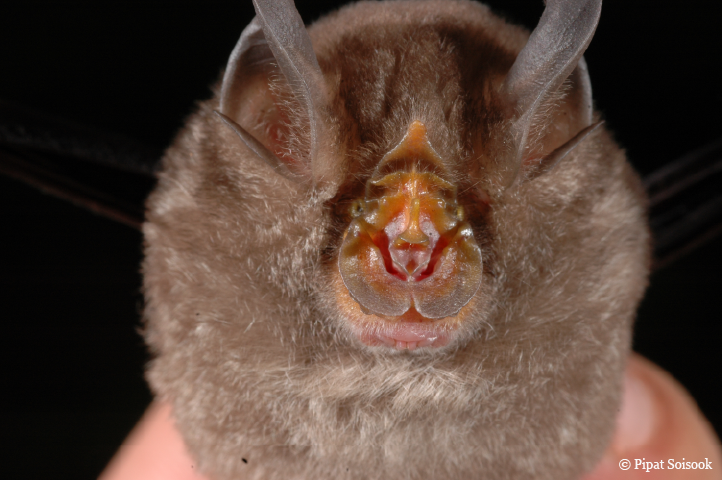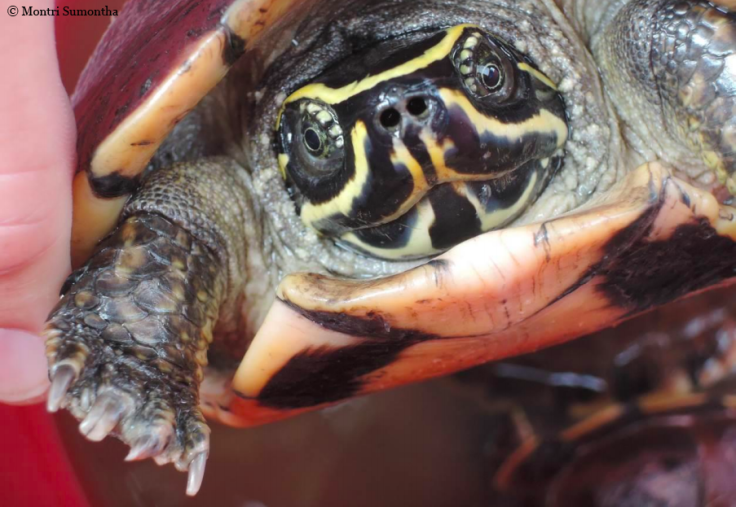A new crocodile lizard has been discovered in Vietnam and it's already under threat from poachers
New finds are already under threat by habitat destruction, poaching and illegal wildlife trade.

A lizard that looks like a crocodile and a turtle that eats snails are among the 115 new species scientists discovered in the Greater Mekong region last year.
The extremely rare crocodile lizard, a mountain bat with a horseshoe face and an extremely vibrant frog were also unearthed in Cambodia, Laos, Myanmar, Thailand and Vietnam, according to a new report by the World Wildlife Fund (WWF) entitled Stranger Species.
The lizard and the frog were discovered along with two species of moles in the same forest in northern Vietnam.
The snail-eating turtle was found in a market canal in north eastern Thailand by shopkeepers.
Stuart Chapman, the WWF regional representative in the Greater Mekong, said the high number of discoveries highlighted the region's rich biodiversity.
"More than two new species a week, and 2,500 in the past 20 years, speaks to how incredibly important the Greater Mekong is," he said.
But the WWF warned in its report that many of the new discoveries are already under threat by habitat destruction, the creation of new infrastructure, poaching and the illegal wildlife trade.
The global populations of fish, birds, mammals, amphibians and reptiles have been reduced by 58% in the past 50 years, according to the WWF's Living Planet report. The fund warned that we could witness a two-thirds decline in global animal species between 1970 and 2020 if we do not act to address climate change and protect biodiversity.

The Greater Mekong is under intense development pressure and mines, roads and dams are threatening the survival of its biodiversity, according to the WWF.
Bushmeat poachers and the illegal wildlife trade might mean that many species could be lost before they are ever discovered, the fund warned.
"The species in the Greater Mekong deserve protection from unscrupulous collectors who are willing to pay thousands of dollars or more for the rarest, most unique and most endangered species," Chapman said.
He added that in the "Golden Triangle" – where Laos, Thailand and Myanmar meet – illegal wildlife markets "operate with impunity in open view".
"It is critical that governments in the region improve enforcement against poaching and close illegal wildlife markets, including notorious tiger and bear farms," he said.























